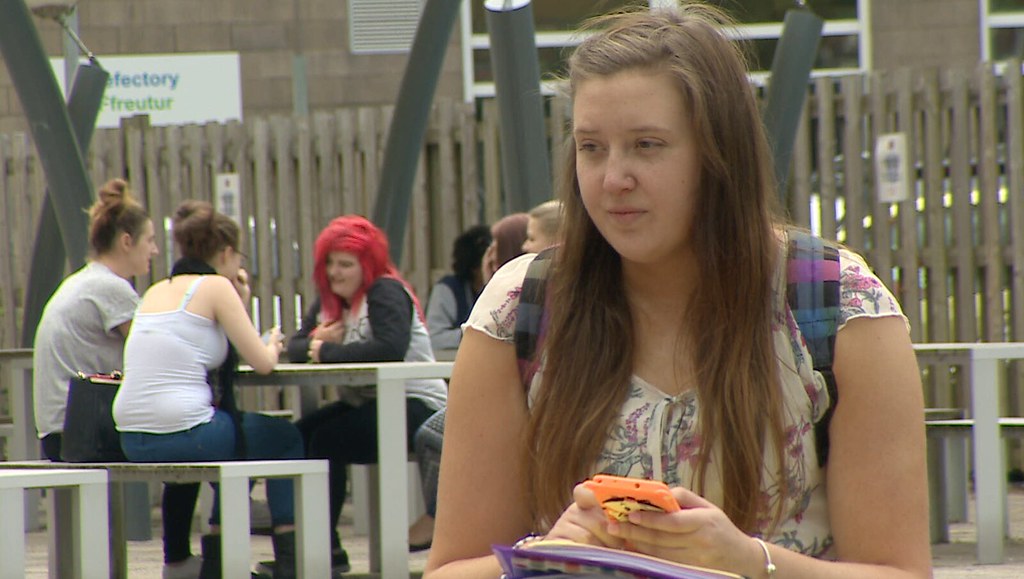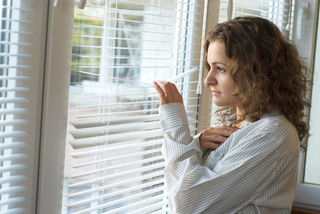
Social anxiety disorder goes beyond being shy or introverted. It involves an extreme fear of social interaction and it interferes with an individual's daily life. The symptoms usually begin around age 13 and persist into adulthood. But most people with social anxiety wait at least 10 years to get help, according to the Anxiety and Depression Association of America.
Whether you think you may have social anxiety, or suspect that someone you know might, here are some of the most common signs:

Source: spass/Shutterstock
1. They imagine embarrassing themselves.
Whether they're about to meet a new person, or they're walking into a social gathering, people with social anxiety disorder envision horribly embarrassing scenarios. They worry that they'll say or do the wrong thing, and they picture that behavior horrifying other people.
2. They avoid situations in which they'll be judged.
Social anxiety causes people to think things like, "Other people will think I'm stupid," or "I'll mess up and everyone is going to think I'm a loser." Their extreme fear of rejection causes them to steer clear of uncertain social situations whenever possible.
3. They only feel comfortable with a few specific people.
Most people with social anxiety feel comfortable with a few specific individuals—such as a best friend, a parent, or a sibling. Interacting with other individuals can lead to a serious spike in anxiety. Often, taking a "safe" person to the grocery store or a social gathering makes interactions a lot less scary.
4. They worry that other people will notice their fear.
Whether they speak up in a meeting or try to make small talk with an acquaintance, people with social anxiety worry that their anxiety is noticeable. They tend to experience physical symptoms such as a flushed face, sweaty palms, trembling hands or shortness of breath, and they're convinced that everyone else can tell when they're nervous.
5. They experience specific social fears.
For some people with social anxiety, the fear is contained to public speaking. But others experience extreme anxiety over things like writing in front of others or eating in public places. Many people with social anxiety fear talking on the phone as well.
6. They criticize their own social skills.
People with social anxiety spend a lot of time analyzing their social interactions. They replay conversations in their minds over and over and scrutinize their communication. They exaggerate their flaws and judge themselves harshly.
7. Their thoughts often become a self-fulfilling prophecies.
The negative thoughts associated with social anxiety often turn into self-fulfilling prophecies. Someone who thinks, "People always think I'm weird," may stick to himself during social engagements. His aloofness may discourage others from talking to him, reinforcing his belief that he's socially awkward.
How to Get Help
Social anxiety is a very treatable condition. Therapy, medication, or a combination of the two can often alleviate the symptoms. If you think you may have social anxiety, talk to your doctor. A physician can rule out medical issues that could be contributing to the symptoms and can refer you for appropriate psychological treatment if necessary.

No comments:
Post a Comment